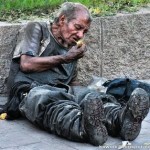– Healthcare in the US. Almost an oxymoron at times.
– Some friends here in NZ are thinking of trips to the US and they are looking into healthcare insurance they can buy here to protect them in the US. Because if you get sick in the US without insurance – God help you.
– So prices were discussed and I had to reflect how those prices compared with what I paid for healthcare in the US.
– For seven or eight New Zealand dollars a day, you can buy travel insurance here in NZ that will cover you in the US. That’s medical insurance AND travel insurance all wrapped up in one package.
– And, get this: If you get seriously sick in the US, this NZ insurance will put you on a plane and fly you back to NZ to have you treated here – all on the insurance company’s dime!
– When I was still in the US, my ex and I paid approximately $900 US dollars a month for our healthcare insurance. That’s $450 each. And, we each had a $2500 per year deductible on this policy. So, we had to spend the first $2500 each year out of our pocket before the insurance kicked in and then, after that, it paid 80%.
– $450 per month works out to $15 US dollars per day. But, if you also calculate in the $2500 deductible each, that’s another $208 US dollars a month so your insurance is really costing you $450 + $208 = $658 per month for 80% coverage. That’s $21.93 a day !!!
– Compare that with the seven or eight dollars a day I’ll pay a New Zealand insurance company to cover me in the US – and you get the idea, yes?
– Here’s a story for you now to put the cherry square on top of this sweet little story for you:
– – – – – – – – – – – – – – –
Having already set his affairs in order, James Verone calmly walked into an RBC bank in North Carolina and committed his first crime in his 59 years on this planet. Verone handed the teller a note that read “This is a bank robbery. Please only give me one dollar,” took the dollar from the terrified clerk, and sat down on a couch in the bank’s lobby.
“‘I’ll be sitting right over there in the chair waiting for the police,” Verone told the bank teller. And wait he did. Police arrived moments later and apprehended him, hauling him off to the jail cell he so desperately wanted to enter.
No, James Verone isn’t crazy. He isn’t a career criminal. He didn’t rob the bank to get drugs or booze. He didn’t do it to get attention or on a lark. James Verone walked into that bank and committed a felony because going to jail was the only way he could receive the health care he needed to survive.
Verone is one man, but he could really be any one of us. He’s 59 and well past the point of finding a new career. He was laid off from his 17-year job and, with unemployment hardly a survivable wage, took the first job that came his way. He developed a growth on his chest – the sort of medical condition that could be life-threatening – and earned two ruptured disks in his back, along with problems with his left foot.
After depleting his life savings and realizing he had, literally, nowhere else to turn, Verone committed the crime, hoping he could get the medical care that he so desperately needs.
This is what America has come to? Otherwise honest folks, with no where to turn in life, have to resort to fake-robbing a bank with the hopes they’ll be arrested so they can receive medical care?
– More… ➡

